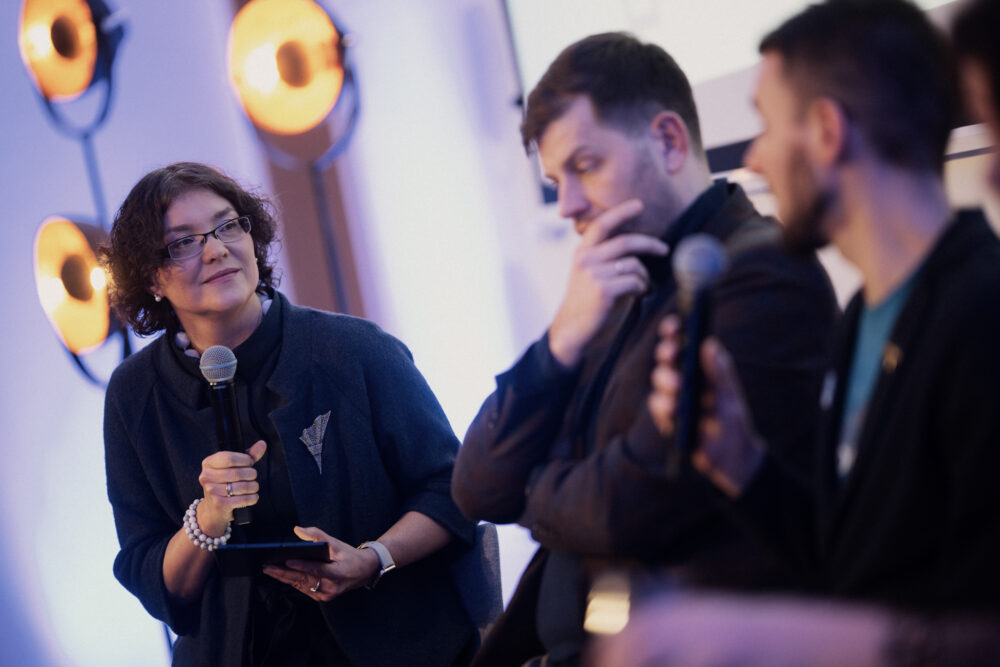
The internet in Lithuania has been used for more than 30 years, whereas the Safer Internet Day was celebrated for the 20th time this year. The internet, network coverage and speed are associated with faster progress, nevertheless, there is also the dark side to the internet, which can be faced any time. For example, in January the internet hotline of Communications Regulatory Authority (RRT) received more than 300 notifications about the information that is forbidden to disseminate over the internet. In comparison to January of the previous year the number of such notifications increased approximately thrice.
“We learn, work, meet friends and spend free time in digital space. The people nowadays are even subdivided into three categories taking into consideration their relationship with the digital world: born in digital world, those who immigrated into the digital world and on the contrary – running away from the digital world. Unfortunately, the criminal acts are also shifting into the digital space,” claimed the Chairman of Communications Regulatory Authority Jūratė Šovienė at the conference organised for the Safer Internet Day.
According to her, the data provided by the Prosecutor General’s Office indicates that the number of such criminal acts is increasing significantly.
“Bullying, that damages the lives of children and adults, frauds and child pornography are all part of the dark reality,” highlighted J. Šovienė.
Communications Regulatory Authority (RRT) has been a participant of the “Safer Internet” project for 15 years already. RRT coordinates internet hotline “Clean Internet”, which receives various notifications about cyber bullying, pornography, child sexual abuse material, disinformation, war instigation and other information that is forbidden to be distributed or has negative impact upon the minors every day.
Harmful screen time
This year the final event of Safer Internet Day called “Child + Screen + School = ?” was inspired by the research about children and screens carried out by the scientists from Vilnius University. During the conference, which was also broadcasted online, the leader of the project professor dr. Roma Jusienė claimed that excessive usage of screens and inclusive internet have negative impact upon not only psychological, but upon physical health as well.
“The most important fact is that the internet takes certain things away from a child, those include physical activity, since there is no more time for any other activity, live relationships with other people decreases, the quality of sleep deteriorates, larger amounts of unhealthy food are consumed and more often we discuss such phenomenon as screen eating,” summarised professor Roma Jusienė to the participants of the conference at Lithuanian National Martynas Mažvydas Library.
During the presentation, her colleague psychologist dr. Lauryna Rakickienė introduced possible methods that could be used regarding digital screens by all countries. According to this scientist from Vilnius University, the screens cause tension for all parents, teachers and children. Therefore, the school may and is bound to initiate a discussion with parents and children, leading to solutions that would be acceptable to everybody and regulate the usage of screens not only at school, but beyond it as well.
Human interaction is important for children
Coordinator of campaign “No Bullying” initiated by public institution “Vaikų Linija” Eglė Tamulionytė shared the experience, what the children themselves tell while talking to the specialists. She emphasised that children do not need technical knowledge of the adults, but rather the human interaction, which would assist in experiencing the internet relationship and coping with different emotions faced.
“It is of utmost importance that children receive adult help at the exact moment, when it is needed. Sometimes it is difficult for children to open up, because they realise that their actions probably did not meet the requests of their parents and due to that they are now in trouble. Children experience tension and guilt,” openly stated E. Tamulionytė, according to her it is very important for the school to be ready to provide help for the child, since most of the cyber bullying is related to school environment, i.e., to the closest circle of people surrounding the child.
After all the presentations a discussion titled “What shall we do next?” was held. During the discussion the lectors were joined by the director of Vytautas Magnus University Lyceum “Sokratus” dr. Mindaugas Nefas also teacher of history and basic citizenship of Vilnius Waldorf School, history teacher of international baccalaureate of Queen Morta School Antanas Jonušas. The discussion was moderated by member of the Board of Communications Regulatory Authority Kristina Mikoliūnienė.
The conference was organised by the consortium of 4 partners supervising the activity of national Safer Internet Centre in Lithuania: Communications Regulatory Authority of the Republic of Lithuania (RRT), Lithuanian Centre for Non-formal Youth Education, association “Langas į ateitį”, public institution “Vaikų linija”.
The entire event is accessible here: https://www.youtube.com/watch?v=frEuLqWMt88&t=348s
Updated on 2023-02-23